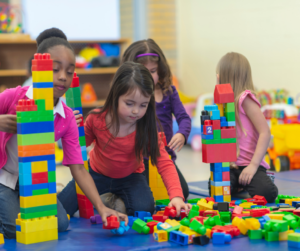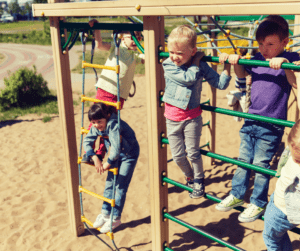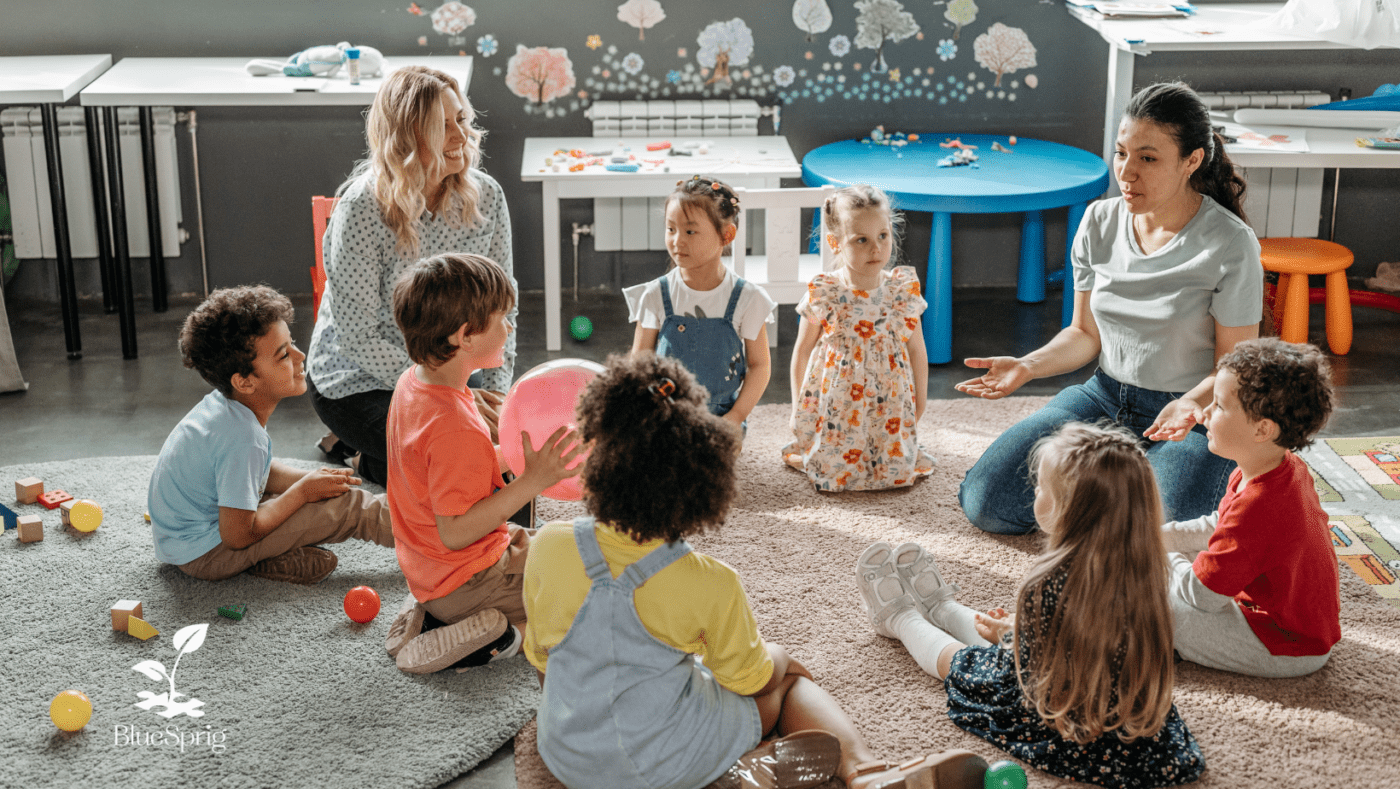BCBAs in the Community: Bringing ABA Therapy Beyond the Center
When it comes to providing Applied Behavior Analysis (ABA) therapy for children with Autism Spectrum Disorder (ASD), the role of Board Certified Behavior Analysts (BCBAs) goes far beyond the walls of a therapy center. When BCBAs implement therapy in community settings, they help children generalize their skills and navigate everyday life situations. In addition, the work done by Registered Behavior Technicians (RBTs) in community settings is equally important to facilitating real-world learning experiences for children with ASD.
The Expanding Role of BCBAs in Community Settings
 When BCBAs step out of traditional clinic settings and into local communities to support children with ASD, their work is hands-on. Collaborating with families, educators, and community members, they tailor and implement treatment plans in real-world environments. They use their expertise to create inclusive experiences for children in community settings. From working with school staff to ensure educational goals align with therapy objectives, to coordinating with local clubs and extracurricular programs to facilitate seamless participation, BCBAs help to bridge therapy with everyday life.
When BCBAs step out of traditional clinic settings and into local communities to support children with ASD, their work is hands-on. Collaborating with families, educators, and community members, they tailor and implement treatment plans in real-world environments. They use their expertise to create inclusive experiences for children in community settings. From working with school staff to ensure educational goals align with therapy objectives, to coordinating with local clubs and extracurricular programs to facilitate seamless participation, BCBAs help to bridge therapy with everyday life.
This approach not only enriches the child’s learning and socialization opportunities, but also empowers families and communities to become active participants in the child’s developmental journey, fostering a supportive network that extends beyond therapy sessions.
How RBTs Facilitate Real-World Learning
RBTs play a pivotal role in bringing the plans and strategies devised by BCBAs into the day-to-day experiences of children with ASD. With a focus on one-on-one support, RBTs guide children through a variety of social scenarios and environments. Their work is hands-on, often involving real-time coaching and reinforcement to help children apply learned skills in active, community contexts. This approach not only aids in the development of practical skills but also boosts confidence and independence. By offering consistent support and encouragement, RBTs ensure that each child’s journey towards mastering life skills is met with understanding, patience, and a sense of achievement. Their dedication to implementing tailored treatment plans in the community lays a foundation for meaningful learning and growth outside the confines of traditional therapy settings.
Navigating Social Spaces: Parks and Playgrounds
 Parks and playgrounds are social classrooms for children with ASD, offering opportunities to hone their interaction and play skills in a dynamic setting. Here, under the careful guidance of BCBAs and RBTs, children explore and engage in play while learning crucial social behaviors such as sharing, initiating and responding to social cues, and participating in group activities. These natural environments provide real-life contexts where children can practice and generalize the social skills they’ve been working on in therapy sessions. Whether it’s taking turns on the slide or joining in a game of tag, each moment at the park or playground is a teachable opportunity. Through play, children make gains in skill development and grow in confidence to interact with peers in a variety of settings. With the direct support of an RBT, children are empowered to navigate social landscapes with greater ease and joy.
Parks and playgrounds are social classrooms for children with ASD, offering opportunities to hone their interaction and play skills in a dynamic setting. Here, under the careful guidance of BCBAs and RBTs, children explore and engage in play while learning crucial social behaviors such as sharing, initiating and responding to social cues, and participating in group activities. These natural environments provide real-life contexts where children can practice and generalize the social skills they’ve been working on in therapy sessions. Whether it’s taking turns on the slide or joining in a game of tag, each moment at the park or playground is a teachable opportunity. Through play, children make gains in skill development and grow in confidence to interact with peers in a variety of settings. With the direct support of an RBT, children are empowered to navigate social landscapes with greater ease and joy.
Educational and Extracurricular Activities: Schools and Clubs
Navigating educational and extracurricular activities presents a unique set of opportunities and challenges for children with ASD. In these settings, BCBAs and RBTs facilitate successful participation and integration. Working alongside teachers and coaches, BCBAs ensure that the child’s learning and social objectives are integrated into their school and club experiences. This often involves customizing strategies that enable the child to engage effectively with peers and activities, enhancing their social and team-building skills.
RBTs assist the child during these activities, offering guidance, encouragement, and reinforcement. Their presence ensures that each child not only participates, but also gains a sense of achievement and belonging. This collaborative approach empowers children with ASD to thrive in educational and extracurricular settings, fostering growth, confidence, and a deeper connection with their community.
Everyday Errands and Appointments: Learning Life Skills
Everyday tasks, such as visiting the grocery store or the doctor’s office, are excellent opportunities for children with ASD to apply and strengthen their life skills. Through the targeted support of BCBAs and RBTs, these mundane activities can become valuable learning experiences.
For instance, a trip to the grocery store might focus on developing a child’s ability to make choices, understand money transactions, and interact socially with cashiers and other shoppers. Similarly, preparing for and attending a medical appointment can teach children about following a sequence of events, expressing their needs, and managing sensory experiences in unfamiliar environments.
When RBTs accompany children on these outings, they provide necessary guidance, prompts, and reinforcement. The support of RBTs enables children to navigate these daily tasks with increasing independence. Real-world practice is pivotal in building the confidence and skills children with ASD need to function more autonomously in their daily lives.
Engaging with the Broader Community
Fostering connections within the broader community is vital for children with ASD, as it enhances their social and emotional growth. BCBAs guide families towards engaging activities and resources that resonate with their child’s interests, promoting a blend of fun and learning. From identifying local events that are welcoming to children with ASD, to facilitating introductions to community groups or classes, BCBAs work tirelessly to create avenues for inclusion.
This proactive involvement helps children build meaningful relationships and develop a strong sense of community belonging. Through community engagement, children experience diverse social settings, enriching their developmental journey and boosting their confidence to actively participate in the world around them.
Community Based Therapy at BlueSprig
 At BlueSprig, we are primarily known for our center-based therapy services; however, we recognize that therapy isn’t one-size-fits-all. During the initial assessment and ongoing reassessments, our BCBAs determine whether home-based or community-based services are more appropriate for their clients, and incorporate community-based therapy to ensure comprehensive, individualized care for each client. This flexible approach empowers BCBAs to tailor interventions to real-world settings, fostering meaningful, sustainable progress. By balancing structured center-based programs with adaptive, community-oriented strategies, BlueSprig demonstrates a commitment to holistic, client-centered care that adapts to the unique needs of each individual.
At BlueSprig, we are primarily known for our center-based therapy services; however, we recognize that therapy isn’t one-size-fits-all. During the initial assessment and ongoing reassessments, our BCBAs determine whether home-based or community-based services are more appropriate for their clients, and incorporate community-based therapy to ensure comprehensive, individualized care for each client. This flexible approach empowers BCBAs to tailor interventions to real-world settings, fostering meaningful, sustainable progress. By balancing structured center-based programs with adaptive, community-oriented strategies, BlueSprig demonstrates a commitment to holistic, client-centered care that adapts to the unique needs of each individual.
